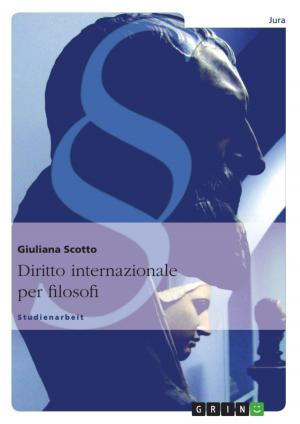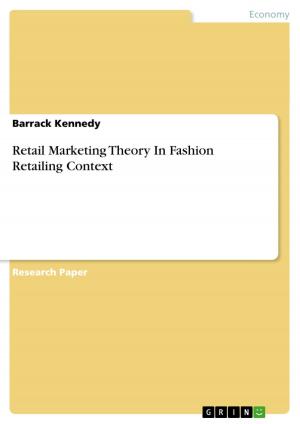Jews and Christians in The Merchant of Venice
Fiction & Literature, Literary Theory & Criticism, British| Author: | Claudia Oldiges | ISBN: | 9783638529839 |
| Publisher: | GRIN Publishing | Publication: | August 3, 2006 |
| Imprint: | GRIN Publishing | Language: | English |
| Author: | Claudia Oldiges |
| ISBN: | 9783638529839 |
| Publisher: | GRIN Publishing |
| Publication: | August 3, 2006 |
| Imprint: | GRIN Publishing |
| Language: | English |
Seminar paper from the year 2002 in the subject English Language and Literature Studies - Literature, grade: 2, University of Osnabrück, course: The Merchant of Venice, 5 entries in the bibliography, language: English, abstract: Although one is able to find a lot bias towards Jews in the play The Merchant of Venice, William Shakespeare is not to be blamed as an anti-Judaic person. Regarding the historical background and the probability of him not knowing a Jewish person, Shakespeare is to be declared as a typical mind of the Elizabethan age. The mentality of the Elizabethan age is resembled in the plot, therefore it was easy for the audience to understand and laugh about this comedy, particularly about the image of the Jew Shylock. Shylock himself has a dominant aversion towards Christians and it is not mentioned whether this attitude derives from his sufferance or is a streak of him. The reader of the past-holocaust-age has a tendency to criticize the Christian behaviour throughout the plot, to feel pity with Shylock and to defend his actions and conduct. A lot of evidence demonstrate fundamental differences and bias between the Jews and Christians in the play The Merchant of Venice. But one ought always consider the time, when the play was written, and the audience, for whom it was written. Fact is that Jews as Christians both pretend to act pious but evidently do not.
Seminar paper from the year 2002 in the subject English Language and Literature Studies - Literature, grade: 2, University of Osnabrück, course: The Merchant of Venice, 5 entries in the bibliography, language: English, abstract: Although one is able to find a lot bias towards Jews in the play The Merchant of Venice, William Shakespeare is not to be blamed as an anti-Judaic person. Regarding the historical background and the probability of him not knowing a Jewish person, Shakespeare is to be declared as a typical mind of the Elizabethan age. The mentality of the Elizabethan age is resembled in the plot, therefore it was easy for the audience to understand and laugh about this comedy, particularly about the image of the Jew Shylock. Shylock himself has a dominant aversion towards Christians and it is not mentioned whether this attitude derives from his sufferance or is a streak of him. The reader of the past-holocaust-age has a tendency to criticize the Christian behaviour throughout the plot, to feel pity with Shylock and to defend his actions and conduct. A lot of evidence demonstrate fundamental differences and bias between the Jews and Christians in the play The Merchant of Venice. But one ought always consider the time, when the play was written, and the audience, for whom it was written. Fact is that Jews as Christians both pretend to act pious but evidently do not.















